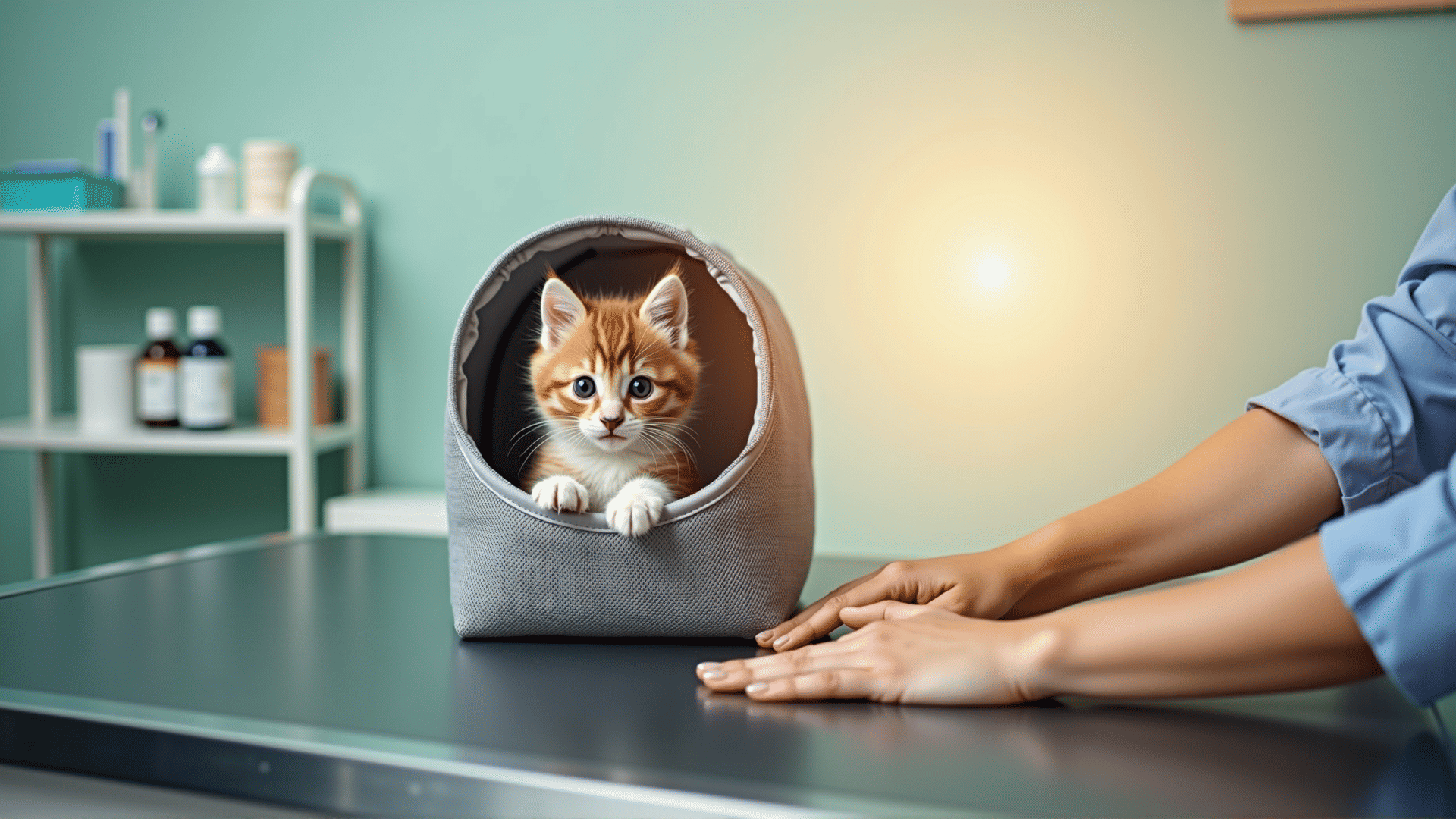Bringing a new kitten into your home is a delightful experience. These little creatures can bring immense joy with their playful antics. However, part of responsible pet ownership involves ensuring their health and well-being. Visiting the veterinarian is crucial for keeping your kitten healthy, but it can also be stressful for both you and your pet. Here are some strategies to help acclimatize your kitten to vet visits, ensuring that the experience is as comfortable and stress-free as possible.
Early Socialization and Handling
Start early by introducing your kitten to being handled in various ways. Regularly touch their paws, ears, and mouth gently to get them used to these sensations. This practice can make your kitten more comfortable because it mimics some of the examinations and procedures they will undergo at the clinic. The more familiar your kitten is with being handled, the less anxious they will be during a checkup.
Carrier Acclimation
Invest in a sturdy carrier and leave it open in your home so your kitten can explore it willingly. You can make it enticing by placing soft bedding, toys, or even treats inside. Encourage your kitten to play or nap inside the carrier, so it becomes associated with comfort and safety rather than a harbinger of an unknown experience.
Short Car Rides
When your kitten is comfortable with the carrier, take them on short car rides around the neighborhood. This practice helps them become accustomed to the motion of the car and can reduce anxiety by the time they need to travel to the clinic. Start with very short trips and gradually increase the duration as your kitten becomes more comfortable.
Clinic Visits Without the Pressure
Consider taking your kitten to the vet clinic for "social visits," where no examinations are done. Simply bring them in to meet the staff, explore the waiting room, and leave without undergoing any procedures. This helps create positive associations with the clinic environment, reducing stress levels during actual visits.
Desensitization to Sounds and Environment
To help your kitten become less sensitive to unfamiliar noises, expose them to recordings of vet clinic sounds like barking dogs, other animal vocalizations, or people talking. Start at a low volume and gradually increase it as your kitten becomes accustomed. Familiarity with these sounds can reduce anxiety during real visits.
Reward and Reassure
Offer treats and praise consistently when your kitten engages in positive behaviors related to vet visit preparation. Reward them for stepping into the carrier, successfully enduring a car ride, or interacting calmly at the clinic. Over time, your kitten will associate these experiences with positive reinforcement.
Appointment Timing
Whenever possible, schedule appointments at times when the clinic is less busy. A quieter environment can help reduce the amount of stress your kitten experiences, minimizing the overwhelming aspects of a vet visit.
Stay Calm and Positive
Your own demeanor can significantly influence your kitten's behavior. Remain calm and use a soothing voice to reassure them. Kittens are highly perceptive and can pick up on your stress or anxiety, which may exacerbate their own.
By following these strategies, you can help turn visiting the clinic into a more positive experience for your kitten. Remember that patience and consistency are key. With time, your feline friend will grow to accept these visits as part of their routine, making each examination or vaccination less stressful for both of you.
